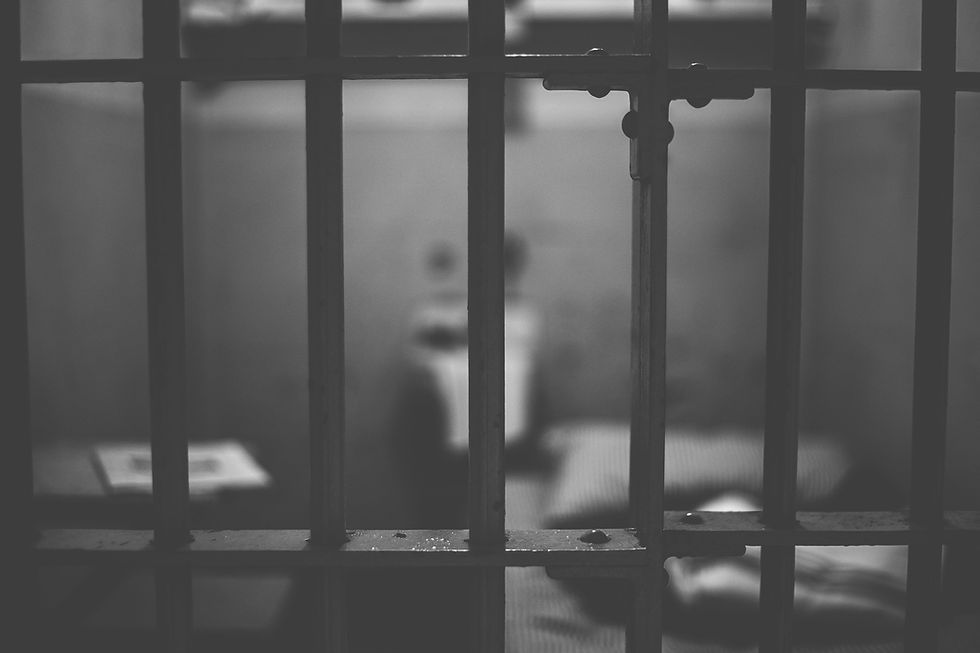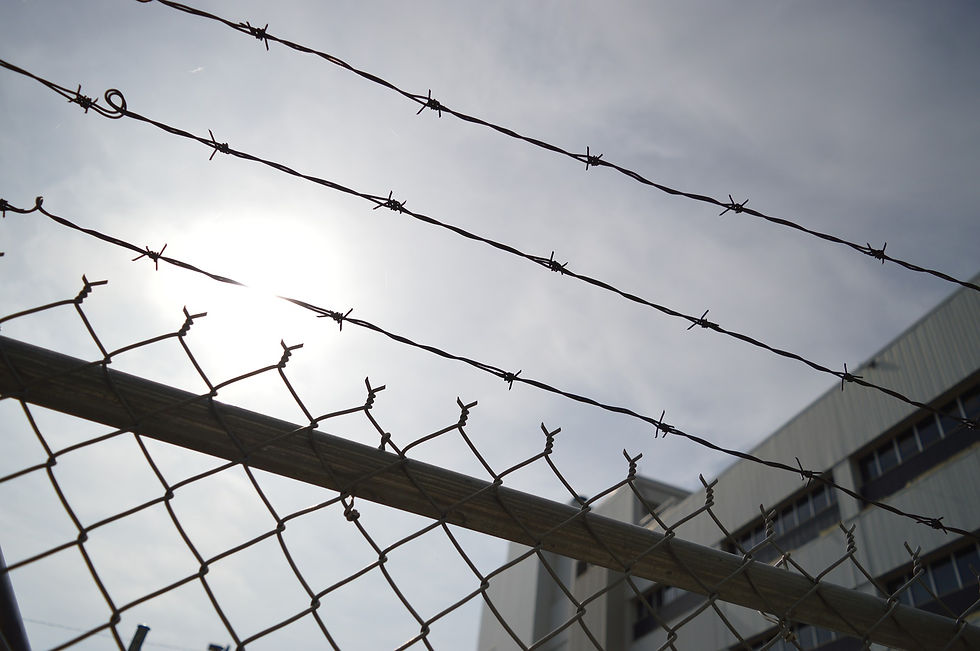Of bars and clubs
- Comunicaciones C3P
- Jul 21, 2021
- 5 min read
Updated: Oct 25, 2021
Historically, the majority of governments in the world, following the premise of punishment and exclusion as the most effective form of re-education, the only solution given to the problem of crime and violence, has been the creation and implementation of prison systems for the deprivation of the freedom of "criminals" as a form of punishment.
Colombia is an example of this: criminalization policies, massive convictions, delays in the unionization process, and, in general, the way the country's prison systems are organized, have made prisons to date Colombians have an overpopulation of 15,510 people, which represents 19.03% of the total capacity of the prisons.
The fact that this overcrowding figure is so high, and has been even higher in previous years, reaching up to 50% of total prison overcrowding, has meant that in Colombia an unconstitutional State of Things was declared on 3 occasions, a mechanism that must be activated when there is a massive violation of fundamental rights or a prolonged omission of the authorities in the breach of their obligation to enforce those rights.

For a dignified life
Among the decisions made by the constitutional court in this sentence T53 of 1998, among several things, the elaboration of a plan for the construction and repair of the prison is ordered in order to guarantee decent living conditions for people deprived of their freedom, to carry out jointly between the Ministry of Justice, INPEC and the National Planning Department. The local administrations are ordered to take the necessary measures to comply with their obligation to create and maintain their own detention centers, to the INPEC that, within a maximum term of four years, completely separate the inmates from the convicted persons, and the responsible entities are It provides them with the obligation to take the necessary measures to solve the shortages of specialized personnel in prisons and the Penitentiary Guard.
“No one would dare to say that the prisons fulfill the work of re-socialization that has been entrusted to them. On the contrary, the situation described above tends rather to confirm that prisons are schools of crime, generators of leisure, violence and corruption. ” Judgment T53 of 1998
In subsequent years, the Colombian state made large budgetary investments for the expansion and construction of penitentiary establishments. In 1998, from approximately 30 thousand places it was raised to almost 50 thousand in 2002. The goal of undoing the prisons was apparently being fulfilled. However, between 2002 and 2013, as more prisons were built, the internal population grew disproportionately and steadily. By 2013, according to INPEC figures, the prison population was 120,032 people, three times more than the 1998 figure of 44,000.
In this context, another sentence of unconstitutionality was issued, which states that the only problem in prisons is not overcrowding, but, in general, the violation of rights such as education, family, health, and in conclusion, the dignified life. This sentence includes issues such as motherhood in prisons, the inclusion of LGTBI people, the Afro-Colombian population and the indigenous population.
Emphasis is placed on an ideal of preventive criminal policy, with guarantees of resocialization and restoration, which would set a precedent for understanding that prevention and education policies can be more effective than criminalization policies.

Imagen de ErikaWittlieb
The problem persists
The states of unconstitutionality have persisted. For the year 2015, the previous sentence was reiterated, confirming that, despite the effort and the large budget (more than 4.4 billion pesos) allocated to the construction of prisons, the problem persists, since what will help the solution will not be to have more places to deprive alleged criminals of their liberty, but to educate and reintegrate these people into society through programs that insist on non-recidivism, giving them socio-emotional, socio-educational and entrepreneurial tools to make this possible.
Important points to keep in mind to understand the Colombian prison context and its problems of rights violations:
1. Not all people who are in prisons
have a current judgment or conviction:
There are people who spend years in prisons without having a sentence or a legal conviction, being "preventively" deprived of their liberty as long as their innocence is proven or their sentence is handed down. The time that a person can legally spend in this deprivation can be up to two years; however, processing delays can take longer. Hence the important request of the last sentence to differentiate between those accused and those convicted.
2. Criminalization policies to guarantee safety
have caused more people to be deprived of their liberty:
In Colombia, from 2014 to 2019, a total of 6,090 people were put into prisons, this “intramural” population growth may be due to the policies of “The one does it pays for it” encouraged by the national governments that try to demonstrate their ability to maintain "security" in the social context of the country. These policies tend to lead to the criminalization of certain people.
3. There are high numbers of recidivism:
Of the 97,081 people currently deprived of liberty in Colombia, 55,956 are convicted of recidivism, that is, when they finish a sentence and rejoin society, they have committed the same crimes, and sometimes more. This shows that there is an evident lack of policies and socio-educational projects for the prevention and non-repetition of crime.
4. There is a need for a differential approach in
judicial and prison systems:
Colombian society has been characterized by being a deeply diverse society, but at the same time, it has been characterized by violating and stigmatizing this diversity. The fundamental rights of certain populations need to be guaranteed:
The LGTBI population that is violated many times for not taking into account their gender identity and sexual orientation, at the time of a conviction, for example, by sending trans women to men's wards, and, prohibiting the entry of visits from homosexual couples for not being considered valid.
The culturally diverse population must be respected for their worship and cultural traditions, regardless of what they are, for example, in specific cases such as indigenous people, it is first necessary to take into account the jurisdictional power of the authority. indigenous, or minimally maintain a dialogue with it.
Finally, in this differential approach, it should be taken into account that the needs of women deprived of liberty are different from those of men. There are condemned women who are pregnant and require more efficient health services, in addition to the fact that the sexual and reproductive health of women requires certain attention, for example in terms of menstrual hygiene.
*There are fewer women deprived of liberty compared to
of the men; however, the female population has a competing debate
on the criminalization of a specific act: abortion.
In Colombia, according to the Prosecutor's Office, 2,290 women were prosecuted between 2005 and 2017 for aborting, among them 55.93% reached the sentencing instance.

It is extremely important to understand how socio-educational and socio-emotional processes or projects such as art therapy, training in self-management and entrepreneurship, emotion management, psychological support, both psychosocial and psycho-therapeutically, as these help those deprived of liberty come out with new life prospects.








Comments